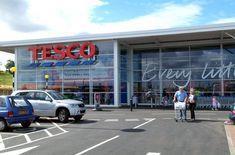
Growers’ and suppliers’ claims of “bully-boy” tactics by the supermarkets have been strongly refuted as the multiples came in for more criticism this week amid rising food prices - despite lower inflation.
National Farmers’ Union (NFU) president Peter Kendall caused a stir at Tesco on Monday when he told the Cardiff Business Club some of the supermarket’s tactics were “outrageous”. Kendall said: “It is not inappropriate to ask, in the wake of the damage done by unfettered, greed-motivated behaviour by some in the financial sector, whether Tesco should continue to chase every last pound of dividend for shareholders at the potential expense of massive damage to the rural infrastructure of this country.
“We are receiving all too many complaints from suppliers frightened of taking up their issues directly, who have had unilateral price cuts and demands for back payments and overriders. Frankly, some of these can only be described as outrageous, bully-boy tactics and they must not continue as we head into recession.”
Tesco was quick to counter this and a spokesman told freshinfo: “We follow the supermarket code of practice at all times; any suggestion we are bullying or being aggressive is simply wrong.
“When suppliers faced higher costs as a result of rising commodity and fuel prices, Tesco increased the price it paid its suppliers to help. Now as most of these prices have fallen, in many cases to levels last seen two years ago, we have a duty to align costs and pass back savings to customers. No supplier is made to agree to anything. We are particularly mindful of smaller suppliers and by working with every supplier individually, we will ensure that the strong relationships we have continue to help everyone through these tough times.”
Meanwhile, the Consumer Price Index showed this week that inflation is falling at its fastest level in 16 years, but mySupermarket.com still puts the annual rate of food and drink inflation at 6.2 per cent.
Among the goods in a typical basket compiled by the internet-based analyst was cauliflower, which has risen by 26.9 per cent year on year and month on month to 99p a head. Frozen peas have shown a 75 per cent rise since last November and a 10p increase since last month.
Tim Mudge of the Processed Vegetable Growers’ Association said: “Why supermarket prices on peas are as high as they are now, when they are certainly not paying growers 75 per cent more than a year ago, I would really like to know. It is all very well to say that fuel prices have gone down now, but what supermarkets fail to recognise is that there are a lot of other costs involved, such as for fertilisers, which have gone up by 100s of per cent. Also, fuel prices were not low in June and July when crops were being planted or sprayed, and in the case of peas when they were being harvested.”



